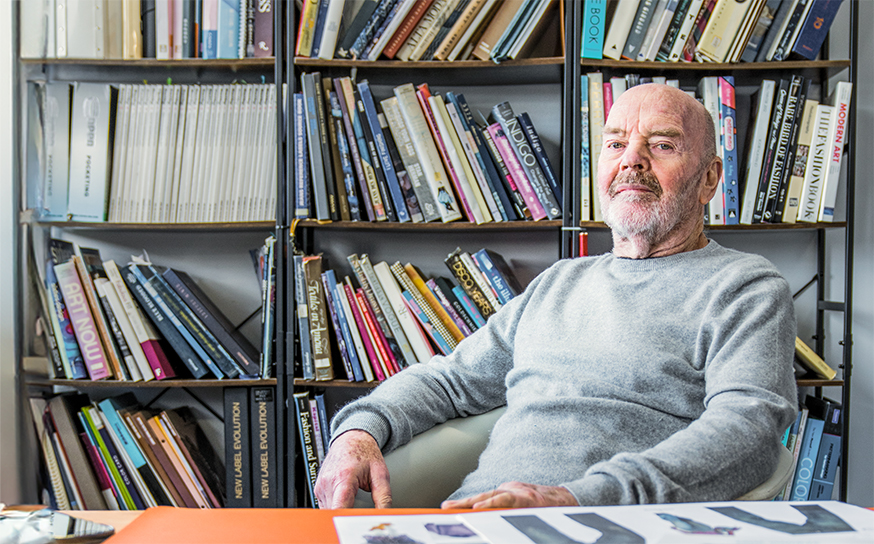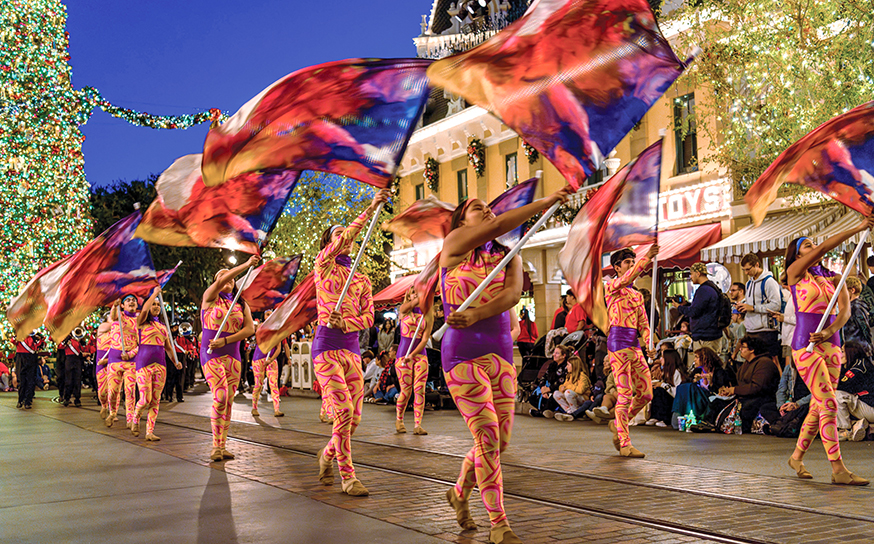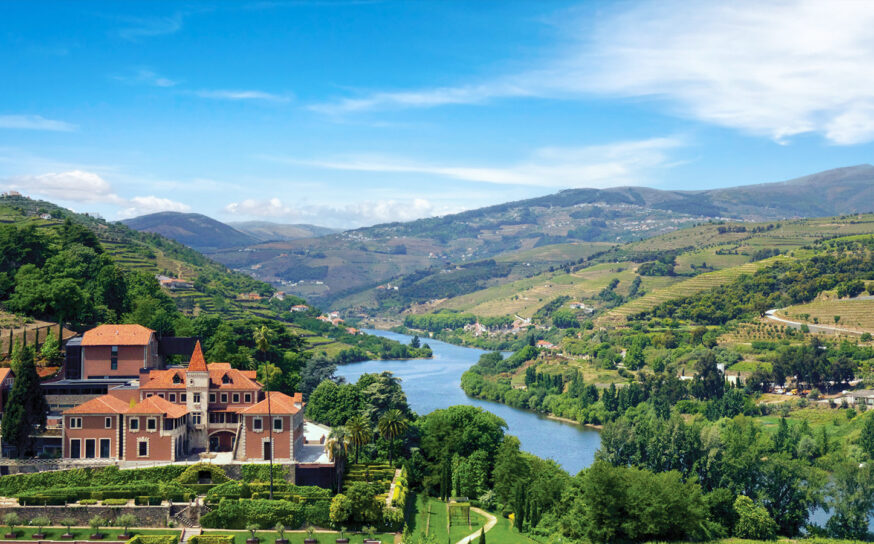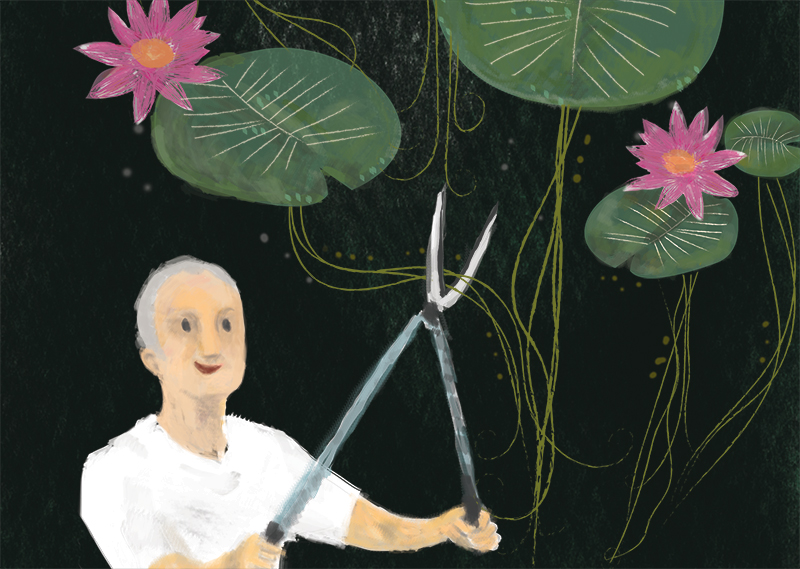
The Lotus Thief
A Reseda nursery owner’s passion for a rare flower variety inspires him to lift some samples, only to later discover he may have the key to saving one of the prettiest public lakes in LA. Was he thief, savior—or both?
-
CategoryPeople
-
Written byMichael Ventre
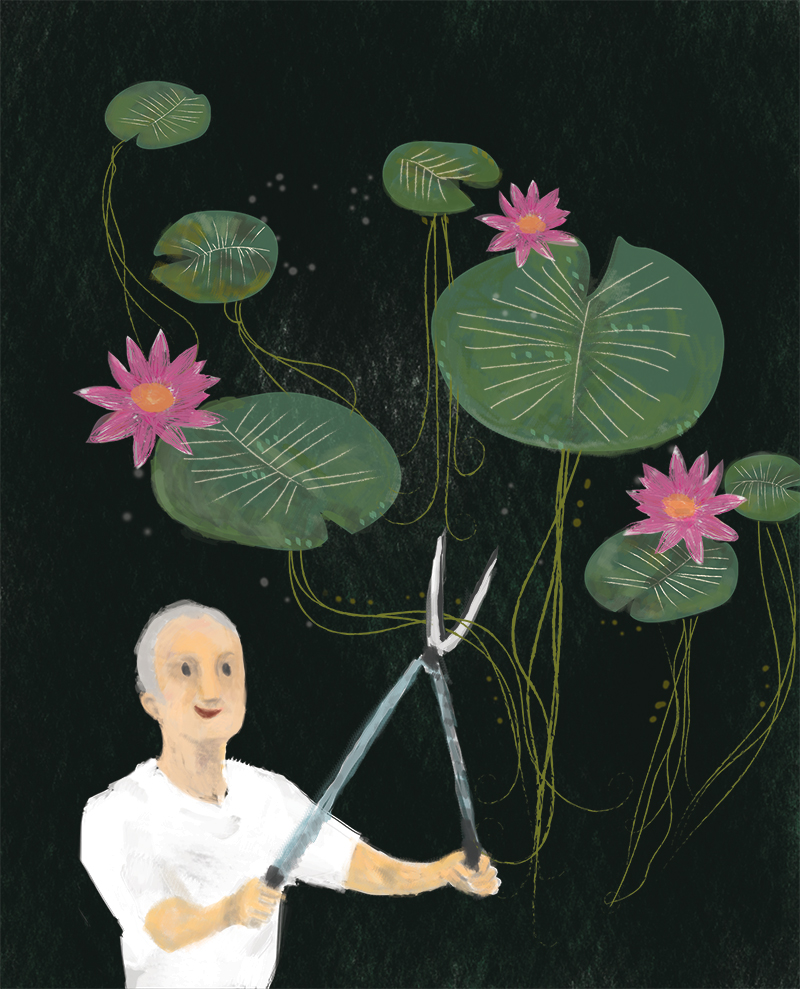
Randy McDonald is, by all accounts, passionate about his work, which involves running his aquatic nursery in Reseda—an oasis of color, natural beauty and H20. He is an earnest guy who clearly delights in helping customers.
But to be perfectly candid, he also has a tiny bit of larceny in his heart. And thank goodness. If he didn’t, the beloved annual Lotus Festival in Echo Park that has taken place for the past 33 years would not exist today, as it would be bereft of its most essential component.
There are several varieties of lotuses, as well as similarly striking water lilies and other colorful, elegant plants at Echo Park Lake. But the lotus that has ruled the lake since the 1920s is the Nelumbo nucifera variety, more commonly referred to as the Asian sacred lotus.
The festival, which is sponsored by the city’s Department of Recreation and Parks, is aimed at promoting awareness of the contributions of Asian-Americans in the community. Amidst the food and music, the main attraction for most is seeing the soft rose- and cream-colored lotus petals in full bloom.
In 2015 Randy decided to attend the festival—with a mission in mind. “In 2005 the lotuses there were fine,” explains the 68-year-old nursery owner. “I only went because some of my customers came in looking for a certain variety of lotus. I had never been to the Lotus Festival before, and I didn’t know about the Asian sacred lotus. I just wanted to see this lotus in its natural environment.”
It’s unclear exactly why customers started asking for that particular lotus. Randy surmised that maybe they had a hunch the Echo Park lotuses were in peril. So a decade ago he made a sojourn to the park for the annual July festival, carrying a small hacksaw blade and procuring a plastic garbage bag from a park employee.
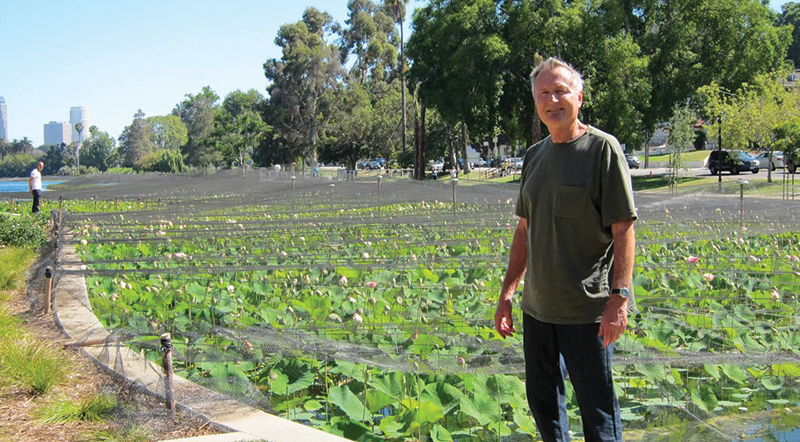
PASSION FLOWER Randy helping with the lotus restoration at Echo Park.
“I walked around the shore looking for a place that was inconspicuous—” he recalls, “someplace where no one would take notice. There were only two spots on the shoreline that I could view that were reachable without jumping into the water. I opted for one of the spots where everybody was taking pictures, so I had to wait until they all cleared out and I could make five quick cuts with a hacksaw blade.”
This wasn’t easy. It was only four years after 9/11, and security in large gatherings was heightened everywhere. “There were tons,” Randy says of the local gendarmes. “Everybody was still on edge. There were plainclothes police around too. I had to kind of line up my girlfriend in front of me so they couldn’t see what I was doing. I’m surprised I got away with it.”
After the pilferage came the lotus operandi: Randy had to grow lotuses from the samples. “Most people can’t grow them to save their lives,” he says. But within two months, he shares brimming with pride, “I had 13 five-gallon pots full of them.”
That turned out to be fortuitous. By 2008, as Randy’s crop flourished, the Echo Park lotus population had completely disappeared. The park and lake were closed for renovation in 2011, with re-opening planned for 2013.
Because Randy is an expert in the field of aquatic plants, his phone began to ring. People in and around the city, as well as some involved with the Lotus Festival, wanted to know why the flowers had all perished—and what they could do about it. “Because a lotus festival without the lotus,” Randy explains, “is like a beer festival without beer.”
Some blamed polluted water; others accused the lake’s natural predators such as fish and turtles. Randy’s theory is that an Indian summer disrupted the plant’s dormancy period. He believes the city’s habit of cutting the plants back at a designated time of year rather than adjusting the trimming process to allow for that change in weather pattern caused the decimation.
“If you cut them too soon, you lose them all,” he shares. “And they lost the lotus around that same time.” With not a lotus in sight at Echo Park, word got around that an aquatic nursery in the far corner of the Valley had some.
Josh Segal is a partner at Segal Shuart landscape architects. At the time was he was working for the firm that was hired by the city of Los Angeles on a $45 million project to drain the lake and restore it to its former glory—complete with Nelumbo nucifera, if possible.
“The restoration of the lotus was a significant part of the project for us,” Josh explains. “We brought on a couple of specialists to our team to make sure we were designing everything to optimal conditions for the lotuses to return. During that process, Randy’s name came up.”
Josh says before Randy was mentioned, he and others on the Echo Lake project had already been in contact with aquatic nurseries in Texas and Florida to buy the Asian sacred lotus. “But when we learned Randy had some from the lake,” he says, “it was a no-brainer. You want to work to bring back the same strain of lotus that lived and thrived there.”
Virginia Hayes, a lotus expert and curator of the living collection at Lotusland in Santa Barbara, has known Randy since the 1980s. She recommended him to Josh and the city of Los Angeles, advising that it was important to maintain continuity with the species.
“One of the things I suggested was that it would be good to have a lotus sourced from a similar latitude because they range so wildly in climate zones,” she says.
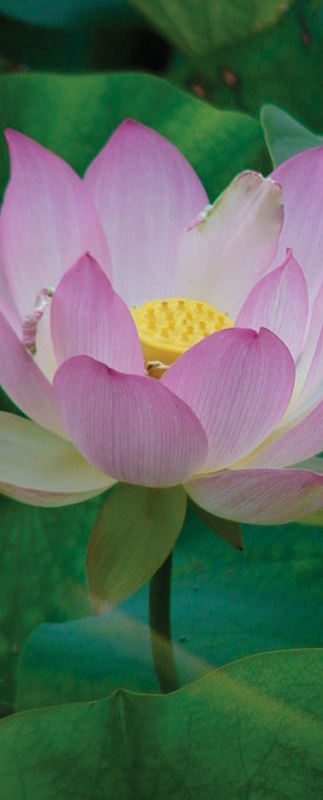 “Trying to plant an Asian type from a tropical climate, for instance, might not be successful in the Los Angeles area. So this all just came together as a good solution: to have a local population of the same plant that has been there since the beginning.”
“Trying to plant an Asian type from a tropical climate, for instance, might not be successful in the Los Angeles area. So this all just came together as a good solution: to have a local population of the same plant that has been there since the beginning.”
The city wound up buying 376 lotus plants from Randy for $30,000, which helped bring the project to completion two years ago. Way back when Randy first began developing an interest in aquatic plants, sales of that size weren’t even in the realm of his thoughts.
When Randy was age 3, growing up in the Venice area, a neighbor friend had tropical fish. While Randy enjoyed watching the fish swim in their tanks, he found he was intrigued by what they swam around.
By age 7 he was growing his own aquatic plants. By 21 he was using a friend’s greenhouse and selling his wares—which also included a special tropical fish food he developed—in and around the Long Beach area.
“I had 40 aquariums in an upstairs apartment and a couple freezers in my living room,” he states. “I started manufacturing this (tropical fish food) product. The landlord came in one day with the owner of the building for a termite inspection. He said, ‘You have one week to get out.’ That kicked my butt to find a warehouse, which turned into three warehouses and 15 employees.” He has been in his current location in Reseda since 1990.
When his Echo Park triumph became public, there were some grumblings—people who questioned whether the city should celebrate a man who stole pieces of a plant, grew a bunch more, then sold them back to the city for a tidy profit.
“When I went on channel 2, 7 and 9 news,” he remembers, “there was some talk about that and editorials in the Los Angeles Times about whether I should give back the lotus to the city of Los Angeles for free because it’s a stolen property. Basically my rebuttal was, ‘OK, I’ll give them back my 8-inch piece of lotus, and let’s see what they can do with it.’ Because they’re not the easiest thing to grow . Once they’re started, they’re easy to grow.”
He adds with a laugh, “They didn’t know whether to give me the key to the city or hang me. The fact is I let the city of Los Angeles know that this was a stolen property. So therefore anybody who is going to buy stolen property is accessory to the fact.”
In any case, everyone involved seems to be pleased with the outcome. This year’s Lotus Festival (July 11 and 12) should offer a bevy of the precious flowers, although there are new challenges.
“I was out there a couple of weeks ago,” Josh says, “and it seems this year they’re having some issues with coots (a type of water fowl) pulling out the lotus. The coots have destroyed a lot of them.”
Yet with plenty of healthy plants, the July tradition at the edge of the city seems destined to continue. Steven Keylon, a local landscape historian who serves as treasurer of the California Garden and Landscape History Society, says he is grateful for Randy’s lotus rehab efforts.
“For over 100 years the lotuses at Echo Park have been internationally known and celebrated,” he says. “I think it is very important, and we are all fortunate to have had Randy continue the Echo Park lotus species. To be able to re-establish the same species from the same family is wonderful. That particular lotus has been so beloved by so many. Thank goodness he did what he did.”
Josh concurs: “As far as the community is concerned, the lotus bed is the most significant part of Echo Park. It’s gotten the most notoriety over the past few decades, even when the lotuses disappeared. That disappearance became something of interest to everybody. They date back to the 1920s, so there’s a lot of cultural and civic significance there.”
Naturally Randy beams when the revival of the lotuses in Echo Park is mentioned—and he is not modest about his role. “I was the sole person who brought them back,” he states unequivocally.
Architect May Sung Comes to The Rescue on a Studio City Reno Gone Wild
In the right hands…finally!





